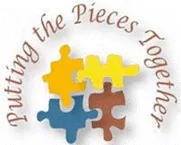Humor and Laughter
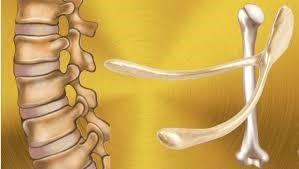
“To thrive in life you need three bones:
A wishbone, A backbone, and A funny bone."
(Reba McEntire)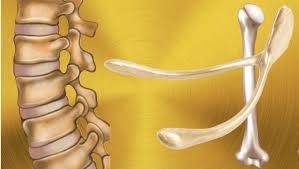
Just completing a course on “Health-Related Benefits of Humor and Laughter,”
I thought I would Blog about it.
What is humor? One of Webster’s many definitions states, “the mental faculty of discovering, expressing, or appreciating the ludicrous or absurdly incongruous: the ability to be funny or to be amused by things that are funny.” More simply, the tendency for experiences to provoke laughter and provide amusement. It can be verbal, audial, visual or physical.
By its very definition, humor is a lighthearted topic, but in the past few decades, science has taught us to consider its benefits a little more seriously. “Humor is one of the handmaidens of wellness,” says Samuel Gladding, a frequent presenter on the subject. “The endorphins kick in, the heart rate is better and our breathing is deeper. There’s an old saying that those who laugh, last.”
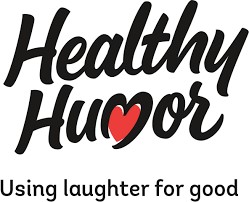
Humor and laughter can be good for the brain and body. Evidence for the direct benefits of humor lie in studies of the body’s chemical reaction to laughter. Among other things, laughter has been shown to reduce stress, boost the immune system and enhance brain chemistry through the release of serotonin and endorphins.
Gladding further states, “Humor helps us shake things off. Anxiety decreases when we realize that we’re not perfect and that we don’t have to be. Humor gives us that right to laugh. It helps us see more of our humanity and realize that the world isn’t always a somber, serious place.”

As a therapist, I can tell you counseling is serious business. I take it serious, as do my clients. Within therapy, humor can be utilized to break a client’s resistance, reduce tension, and increase trust in the client/therapist relationship. The use of humor and laughter in our sessions helps build a relationship with my client and joins us in accomplishing the painful work of therapy, making the rest of our work together more tolerable.
There’s definitely a line/boundary and I have to be entuned with my client(s) to know if or when to use humor. But, consistently, research has found information that reinforces humor as a positive tool to be implemented during counseling sessions in building and enhancing communication, and help improve general sense of well-being. Freud stressed that there is a distinct connection between humor and a clients healthy adjustment.
Humor can reflect the healthy release of feelings during the counseling process, the type of emotional release that leads to significant therapeutic gains. It can also be a disturbing distraction, possibly causing early termination, if used inappropriately. (Journal of counseling and development)

Having a sense of humor has also come in handy for me, especially in not taking myself too seriously when I make a mistake. And believe me, that happens more times then I care to admit. Humor can help get me out of that embarrassing jam and accept the therapeutic blunders.
A well-developed sense of humor is the pole that adds balance to your steps
as you walk the tightrope of life.
– William Arthur Ward
Following are some serious facts about Humor Therapy BY ZUR INSTITUTE
- Researchers say children laugh about 300 times a day, adults perhaps 15 times a day.
- The sound of roaring laughter is far more contagious than any cough, sniffle or sneeze. Humor and laughter can cause a domino effect of joy and amusement.
Laughter is very powerful medicine. Some of the health benefits of humor and laughter include:
- Fosters instant relaxation and lowers blood pressure
- Boosts immune system.
- Improves brain functioning and protects the heart.
- When we laugh, natural killer cells, which destroy tumors and viruses, increase along with Gamma-interferon (a disease-fighting protein), T-cells (important for our immune system) and B-cells (which make disease-fighting antibodies).
- Laughter increases oxygen in the blood, which also encourages healing.
- “When you laugh, your mind, body, and spirit change” Mark Twain
Mental health benefits of humor and laughter include:
- Reduces stress, depression, anxiety and fear.
- Elevates mood.
- Increases energy and can help us perform activities that we might otherwise avoid.
- Can be a safe way to introduce ourselves to others.
- Laughter, like a smile, is the shortest distance between two people. It makes people feel closer to each other.
- When we experience humor, we talk more, make more eye contact with others, touch others, etc.
- Marriages and relationships can tremendously benefit from humor and laughter.
- When people laugh together, they feel bonded and can better go through hardship together.
- A healthy sense of humor is related to being able to laugh at oneself and a way of accepting oneself.
Benefits of humor in therapy:
- Enhances therapeutic alliance and increases trust between therapists and clients.
- Helps clients feel good about themselves.
- Helps clients gain perspective.
- Humor can help clients’ thought processes by helping them to get unstuck.
- Helps clients cope with difficult situations, such as death and illness.
- Helps clients accept themselves. (“The older you get, the tougher it is to lose weight, because by then your body and your fat are really good friends.” – Bob Hope)
- Activates the chemistry of the will to live and increases our capacity to fight disease.
- Humor can be used diagnostically. Goethe said: “People show their characters in nothing more clearly than in what they think laughable.” The kind of humor people use often shows the kind of people they are.
- Laughter is cathartic.
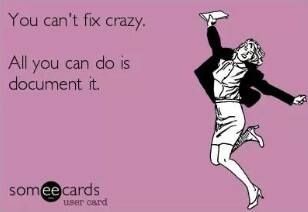
Concerns with humor:
- It can be hurtful, demeaning, sexist and racist and a way to dominate.
- It can be self-depreciating in unhealthy ways.
- Laughing with others is an icebreaker, however, laughing at others is an icemaker.
